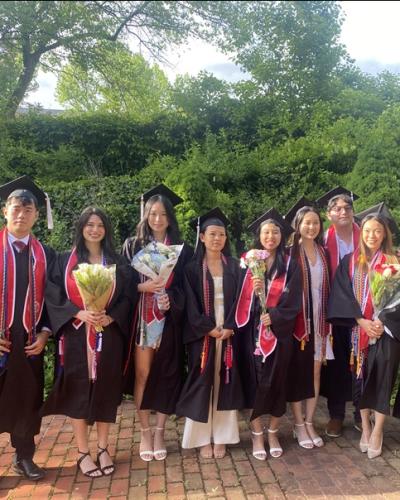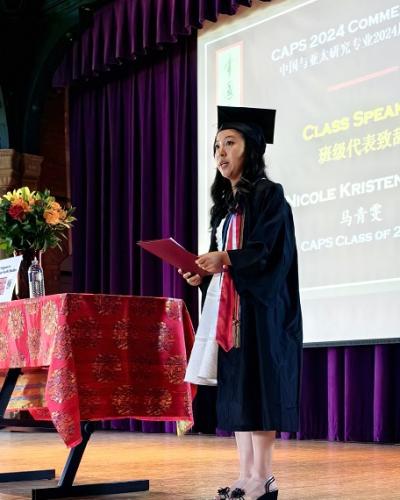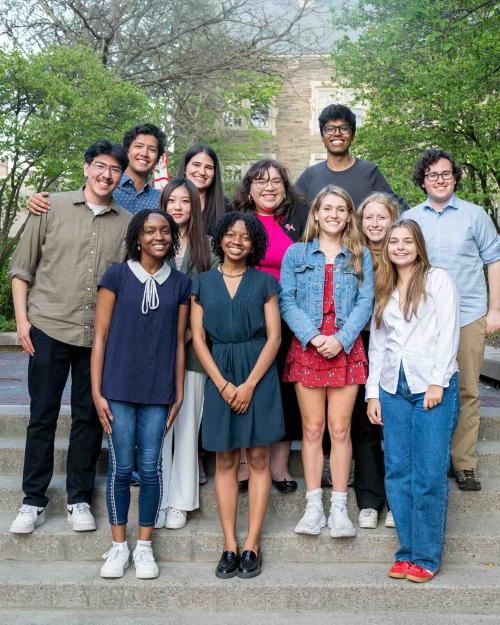With plane tickets booked and schedules set, seven students prepared for a semester abroad in Beijing, China. In a twist of fate, they all ended up back at Cornell due to the international novel coronavirus outbreak.
A week into this semester, Prof. Allen Carlson, government, China and Asia Pacific studies program director, hosted a video conference to inform students who were set to leave for Beijing that the trip had been canceled. Immediately, students scrambled to make plans to stay on campus for the rest of the spring semester.
“Just on a personal level, I saw that I wouldn’t be comfortable with my son going — and by extension the students, many of who have taken classes with me basically their entire time at Cornell,” Carlson said about his decision to cancel the trip. “I started to feel not comfortable about putting them in a position where they have to choose between going or not.”
Soon after CAPS canceled its Beijing trip, the University followed suit, canceling all study abroad programs in China on Jan. 29. CAPS’ and the University’s decision to cancel the program came after the Centers for Disease Control issued a level 3 travel warning, urging travelers not to visit China for nonessential travel.
The novel strain of coronavirus, which originated in Wuhan, China, has sickened over 43,000 people and killed over 1,000, as of Monday night. In Beijing, there have been 337 confirmed cases of coronavirus and two deaths so far.
A semester abroad in Beijing is required to complete the CAPS major. In Beijing, students take classes at Peking University while also holding part-time internships.
After the cancellation, Ava Pacheco ’21 instantly turned to her advising dean to enroll in classes for the semester and then looked to sort out her housing situation.
“My dean was a big help,” Pacheco said. “She emailed all my professors of classes that I was going to enroll in to be like, ‘This is the situation that I was in and just please be accommodating.’ And then I found my housing through a couple of people, but one of the people was recommended by CAPS.”
For Pacheco, the program’s cancellation this semester meant that she would not be able to complete the CAPS major. Instead, Pacheco will pursue the department’s minor and not study abroad in Beijing next semester because she has to stay on campus to complete her second major in Spanish.
“You plan out your whole college career and then a pivotal part of it is canceled,” Pacheco said. “It’s kind of sad. And also, it would just be a really fun experience. But I do understand that the students’ health comes first.”
Alex Davis ’21, a CAPS minor, planned to take the trip for self-enrichment since it is only required for the major. However, he does not plan to go on the trip in the fall because he wants to spend his senior year on campus.
“It wasn’t handled in any way that will make me say, ‘Oh, I’m never doing this again,’ Davis said. “Everything was on time for the most part and communicated well, so it’s not a matter of the program or anything that the program did.”
In regards to how CAPS students will fulfill their major requirements, Carlson said that students are encouraged to travel to Beijing next semester in the Fall instead.
“Things are still so unsettled,” Carlson said. “It’s hard to know where everyone is going to be in another few weeks or months, regarding the spread of the coronavirus. Our first priority was simply facilitating the return to campus, and now we can think more concretely about next steps.”
CAPS is also cosponsoring a roundtable on the outbreak on Tuesday with the Cornell China Center and the Migrations Global Grand Challenge Initiative. The panel will focus on the health concerns and public policies surrounding the outbreak.
This article originally appeared in the Cornell Daily Sun.






